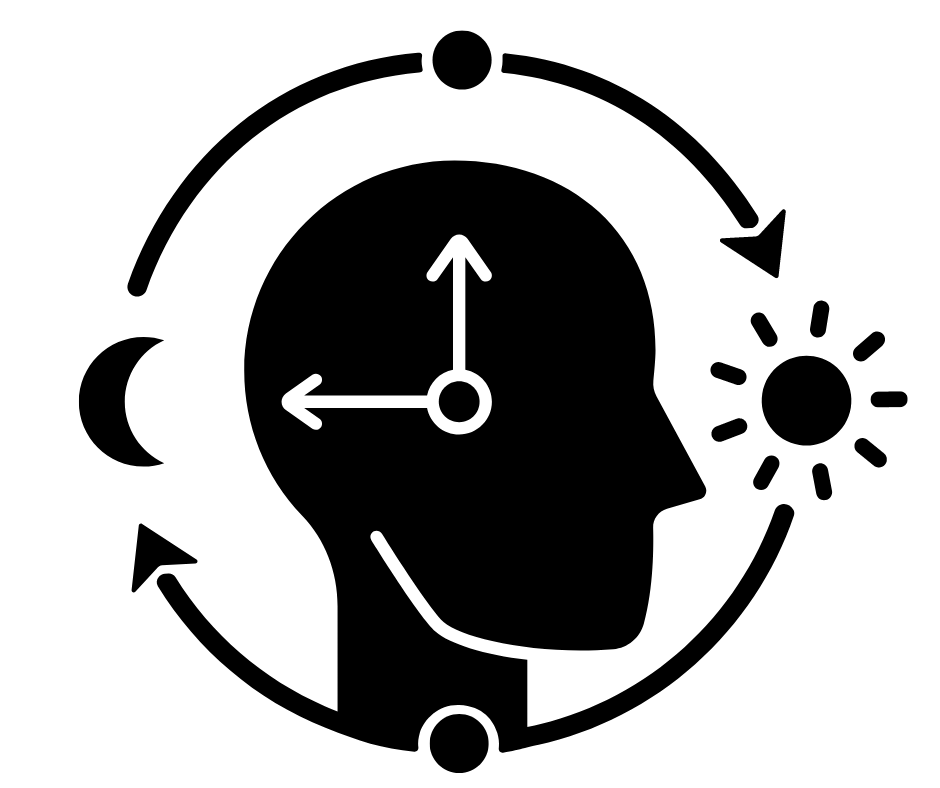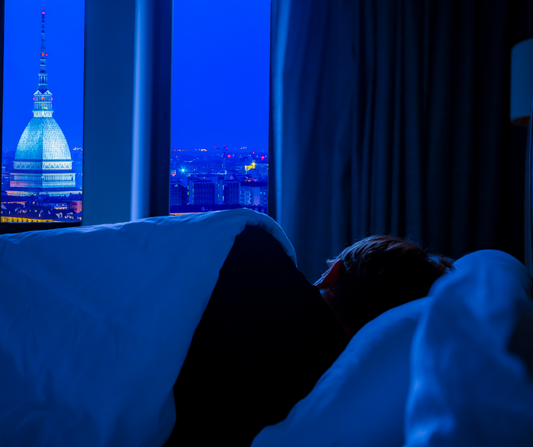We’ve all heard the term circadian rhythm, but do we really know what it means?
What is a Circadian Rhythm?
The term "circadian" comes from Latin and translates to “around the day." Circadian rhythms follow a 24-hour cycle which regulate many bodily functions in synchronization with the brain’s master clock. Closely tied to light and darkness, circadian rhythms are found in almost all living organisms, from bacteria to plants and animals.
Circadian rhythms affect mental health, metabolism, and our immune systems. But one of the most well-known of these circadian rhythms is the sleep-wake cycle.
When it is dark, our body produces melatonin, a hormone that makes us feel sleepy. In the morning, when it is light, melatonin production decreases, and cortisol, a hormone that helps us wake up and feel alert, increases. This cycle is known as the circadian sleep-wake cycle and is responsible for our daily sleep patterns.
It’s fascinating to note that Circadian rhythms have adjusted through the centuries with the advent of electricity and modern technology. For example, people in the 1800s lived in a world largely dictated by the natural cadence of the sun. As a result, their circadian rhythms were likely quite different with a much stronger connection to the environment and its cycles of light and dark.
In proper alignment, circadian rhythms promote stable and restorative sleep. But when the circadian rhythm is thrown off, it can create significant sleeping problems, including insomnia. Today, many folks find that their natural sleep cycles are disrupted by difficult work schedules, a new baby, jet lag, or even late-night Netflix binging. What can you do if you feel that your own circadian rhythm is “off” and your sleep-wake cycle is suffering?
How can I improve my sleep-wake cycle?
Stick to a consistent sleep schedule: Try to go to bed and wake up at the same time every day to regulate your body's internal clock and improve the quality of your sleep.
Get exposure to natural light: Exposure to natural light during the day can help regulate your circadian rhythm.
Limit exposure to artificial light: Artificial light, especially from electronic devices, can disrupt your circadian rhythm. Limit your exposure to artificial light, especially before retiring to bed.
Avoid caffeine and alcohol: Try to limit your intake, especially in the afternoon and evening.
Exercise regularly: Regular exercise can help improve the quality of your sleep and regulate your circadian rhythm.
What have we learned?
Circadian rhythms follow a 24-hour cycle which regulate many bodily functions including the sleep-wake cycle. Take a few simple steps to improve your sleep-wake cycle and reap the benefits of a good night's rest.
Scroll down and sign up for our monthly newsletter to learn more.
Dream big, work hard, sleep ambitiously,
Joe Castignani



